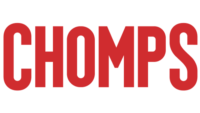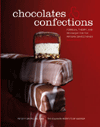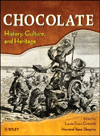GoodSAM makes strides in regenerative agriculture
The company pays farmers directly to ensure a fair price.

courtesy of GoodSAM Foods
GoodSAM Foods, a healthy food brand committed to sustainability and regenerative agriculture, recently released the GoodSAM Impact Report 2023, detailing the company’s strides in regenerative agriculture and direct impact on the environment in communities where GoodSAM operates.
GoodSAM has long been dedicated to sustainability and adheres to the idea that food should be good for consumers, farmers, and the planet. The B Corp has also created a direct trade model that cuts out the middle man by paying regenerative agriculture-focused farmers directly, ensuring a fair price and allowing consumers more access to high-quality organic and regenerative products.
To learn more, we reached out to Heather K. Terry, CEO and founder, GoodSAM.
Liz Parker: How has GoodSAM made strides in regenerative agriculture?
Heather K. Terry: GoodSAM has made significant progress in promoting regenerative agriculture, focusing on creating a sustainable and resilient farming ecosystem. Their approach includes practices like crop rotation, integration of livestock, maintaining soil cover, and minimizing soil disturbance. We are committed to maximizing crop biodiversity, which not only improves soil health but also provides a year-round income stream for farmers. Their regenerative agriculture model is tailored to the specific needs of each ecosystem and community they work with, ensuring that the practices are effective and beneficial locally.
LP: What has been the direct impact on the environment in communities where GoodSAM operates?
HKT: Our efforts have led to substantial positive environmental impacts in the communities where we operate, which is a huge part of how GoodSAM is good for people. For instance, our team has implemented solar panel installations and clean water projects in the La Sierra Nevada region, enhancing both environmental sustainability and community well-being. Additionally, their regenerative practices help sequester carbon, improve soil health, and increase biodiversity, which collectively contribute to a healthier environment.
LP: How does GoodSAM’s direct trade model work?
HKT: Our direct trade model involves eliminating intermediaries to ensure that farmers receive a fair price for their products. This model allows farmers to decide how best to invest in their land and communities, addressing their specific needs rather than adhering to external mandates. This direct trade approach not only supports fair wages but also empowers farmers to make meaningful improvements, such as enhancing security and infrastructure in their communities.
LP: How does GoodSAM partner with cocoa farmers?
HKT: Our team at GoodSAM partners with cocoa farmers by directly sourcing from them and integrating their crops within a regenerative farming system. This partnership model has expanded significantly, with the number of cocoa farmers growing from 68 to 166 and the purchasing volume increasing accordingly. By working closely with these farmers, GoodSAM supports their transition to regenerative practices, which improves economic stability and increases income opportunities.
LP: What’s next/what’s new for GoodSAM in 2024?
HKT: The future is looking bright! Throughout the rest of 2024, we plan to expand the GoodSAM product portfolio and deepen our commitment to regenerative agriculture. New initiatives include sourcing organic pecans from regions facing water scarcity and socio-economic challenges, introducing new products like honey and fruit chips, and exploring sustainable sweeteners such as unrefined cane sugar. We also aim to release biannual impact reports to better quantify and showcase their environmental and social impacts. Additionally, our team will continue to focus on building long-term, mutually beneficial relationships with farmers and educating consumers about the benefits of regenerative agriculture.
Related: GoodSAM Foods debuts Pineapple Chips, Chocolate-Covered Macadamia Nuts at Expo West
Looking for a reprint of this article?
From high-res PDFs to custom plaques, order your copy today!










